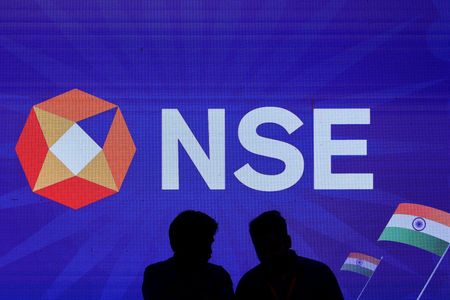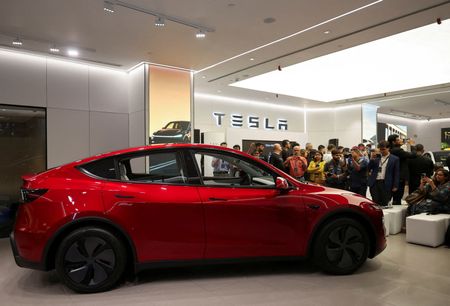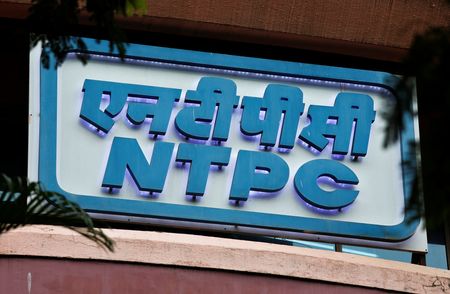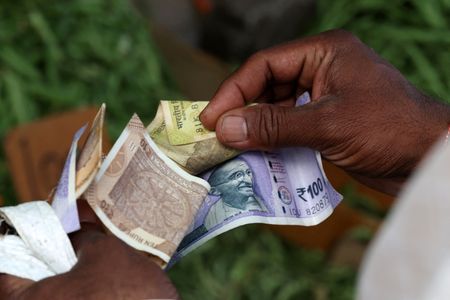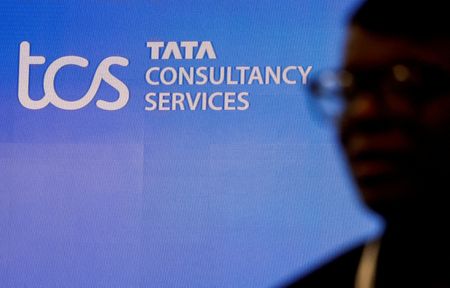By Bharath Rajeswaran and Shubham Batra
(Reuters) -India’s equity benchmarks reversed early gains to end lower on Tuesday, as an expiry-driven pullback in heavyweight financials offset a broad-based rally, while investors awaited a key Goods and Services Tax (GST) Council meeting later this week.
The NSE Nifty 50 fell 0.18% to 24,579.60 and the BSE Sensex slipped 0.26% to 80,157.88. The indexes rose as much as 0.5% earlier in the session.
The slide stems from expiry-driven unwinding in financials, which dominate the Nifty, two traders said.
The NSE’s weekly derivatives expiries shifted to Tuesday from Thursday on September 2, adding extra pressure and volatility, according to traders.
Financials ended 0.7% lower after climbing about 0.35% earlier in the session.
In contrast, expectations of GST cuts buoyed consumer stocks, which advanced 1.1%. Nestle India, Hindustan Unilever, Dabur India and Emami gained between 1% and 4%.
The GST Council, set to meet on September 3–4, is considering lowering the consumption tax by at least 10 percentage points on about 175 products, including shampoos, hybrid cars, and consumer electronics.
“Investor sentiment is torn between 50% U.S. tariff and optimism over upcoming GST reforms,” said Prashant Tapse, senior vice president of research at Mehta Equities.
Nine of the 16 major sectors ended higher. Broader markets outperformed, with small-caps and mid-caps advancing 0.5% and 0.3%, respectively.
Reliance Industries rose about 1%, lifting the energy sub-index by 1%, after Morgan Stanley raised its price target on the stock, citing benefits from China’s push to reduce excess capacity in energy and solar supply chains.
Among individual stocks, sugar companies such as Balrampur Chini, Triveni Engineering, Shree Renuka and Dalmia Bharat Sugar gained after the government allowed unrestricted ethanol production from sugarcane byproducts from the 2025-26 marketing year.
Mahindra and Mahindra, which is betting on higher-priced electric vehicles, fell 2.4% after Reuters reported India’s tax panel recommended raising the GST rate on luxury EVs to 18% from 5%, citing documents.
(Reporting by Shubham Batra and Bharath Rajeswaran; Editing by Eileen Soreng, Sumana Nandy and Nivedita Bhattacharjee)

